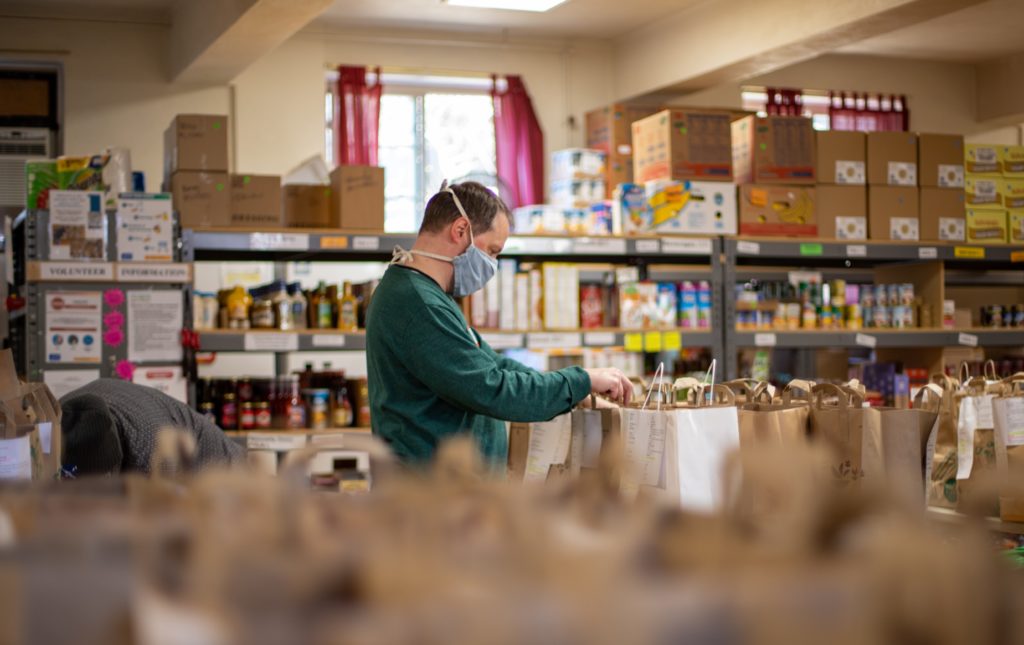
The Mobilising Voluntary Action project
‘Mobilising Voluntary Action (MVA) in the four UK jurisdictions: learning from today, prepared for tomorrow’ was a research project funded by the Economic and Social Research Council’s (ESRC) rapid response COVID-19 call. The research was conducted by a UK-wide team of academics and the four key sector infrastructure bodies in each jurisdiction. The project employed a mixed methods approach to gather data on the diverse range of pandemic responses across the UK. The study aimed to inform national recovery and preparedness for future crises by answering the following research questions:
- In what ways do the voluntary action policy frameworks adopted by the four nations in response to COVID-19 differ? And how effective are they?
- Who has responded to the call to volunteer during the COVID-19 pandemic? Has the profile of volunteers changed (intersectionality)? How can we sustain the involvement of new volunteers beyond the pandemic?
- Are there examples of good practice for voluntary action to support communities and individuals in times of crisis? In what ways can good practice be shared? And are they transferable across the jurisdictions?
The briefings
Across the UK the COVID-19 pandemic transformed the landscape of ‘voluntary action’[1]. Volunteers have contributed to the national pandemic response in various ways including, but not limited to, delivering food parcels and medicine, befriending those lonely and isolated, and supporting the vaccine rollout. The voluntary sector and volunteers continue to respond to unmet need that has emerged or been exacerbated as a result of the pandemic, alongside supporting those affected by the cost of living crisis. The following briefings focus on three cross-cutting themes identified in all four jurisdictions in the MVA study, namely, the use of digital technology, volunteer wellbeing and collaboration. The briefing reports provide links to emerging research into the impact of COVID-19 on voluntary action including work on social prescribing (National Academy for Social Prescribing and Royal Voluntary Service, 2022), mutual aid (Thiery et al., 2022) and the impact of the pandemic on the volunteering experience more broadly (Kanemura, Chan and Farrow, 2022). The three briefings are designed to offer ideas for action to support volunteer-involving organisations, policymakers and funders to take forward the learning amassed during the pandemic.
The use of digital technology
The first briefing focuses on the role of digital technology in supporting different stages of the volunteer life cycle. When pandemic restrictions limited social contact, organisations were forced to re-imagine the way they worked and what volunteers were able to do. Some volunteers moved to virtual roles, but not all organisations were able to use digital technology as an adaptation strategy. The digital shift has exposed the extent of digital exclusion in many parts of the UK, whereas in other cases, the pandemic has evidenced the value of offering blended provision for both volunteers and service users.
Volunteer wellbeing
Recent research has explored the association between volunteering and improved wellbeing. Volunteering provides an opportunity for individuals to build connections with others and their community, but the pandemic has created additional barriers for some groups, impacting their access to volunteering opportunities. Pandemic restrictions transformed working life enabling some to volunteer for the first time, while others were forced to shield or limit their involvement. The pandemic has had a disproportionate societal impact, and there are concerns surrounding those who have had to pause or step back from their roles during the pandemic, missing out on the wellbeing benefits volunteering can bring. As we learn to live with COVID-19, volunteer-involving organisations face challenges sustaining the involvement of those that are new to volunteering while finding ways to support long-standing volunteers to return to roles, all with limited resources. The second briefing suggests how organisations can support the wellbeing of existing and future volunteers.
Collaboration
A widely reported theme across the UK has been the unprecedented levels of collaboration observed during the pandemic. Individuals and organisations in all sectors of the economy have worked together to support communities through the pandemic. There is widespread recognition of the need to capitalise and build on these new and strengthened relationships by focusing on the conditions that enable collaboration to flourish. The third briefing considers how collaborative relationships can be fostered within and between organisations.
[1] The definition of voluntary action used in the project can be found on the project website: Working paper 1: A picture is worth a thousand words – Mobilising UK Voluntary Action during COVID-19 (mvain4.uk)
Thanks to Jo Stuart for producing the briefing documents.
